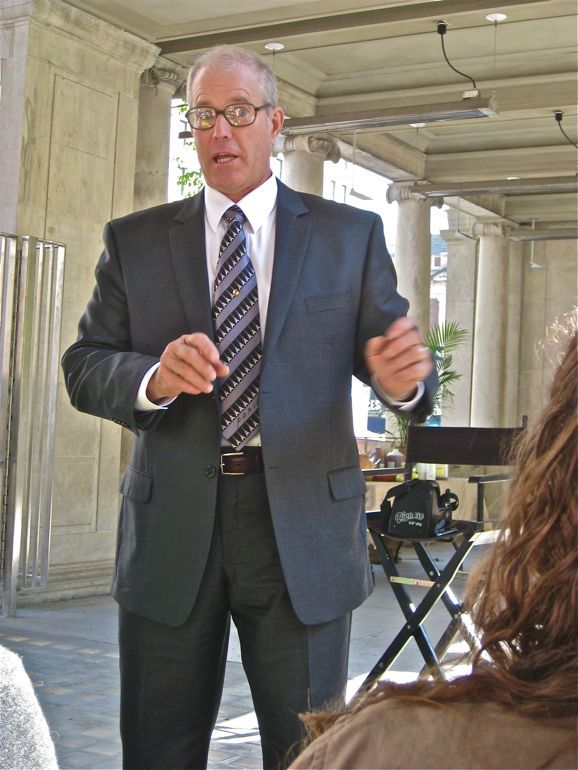Joel Salatin was in Union Square Wednesday talking about his new book, appropriately titled, Folks, This Ain't Normal and passionately spoke about the state of industrial agriculture and its effects on our soil, our health, and our culture.
When I asked him what activists can do to align ourselves with the Occupy movements and combat Big Food he said, "The beauty of that is you don't have to wait for a government regulation, you don't have to wait for a program, you don't have to wait for an agency." Rather, Salatin said that all cultural movements are started from the bottom-up with real grass-roots activism. He went on to say that we all need to get into our kitchens and get cooking. He said, "Get in your kitchens, buy unprocessed foods, turn off the TV, and prepare your own foods. This is liberating."
Salatin also advised us all to start growing something -- anything, even on a small patio or windowsill. If we can't grow anything, he said, then we should come to the farmers markets and buy from our local farmers. "Know you food, know your farmers, and know your kitchen. Start building up your larder! We don't even use that term any more," he said. "It used to be, 100 years ago, if I came into a town and said, 'Where's the food?' people would take me to their houses and show me their larders. Today if I ask, 'Where's the food?' the food is 1000 miles away in a Costco warehouse. It's very vulnerable, very insecure. And at a time when many people feel insecure and feel like the culture is heading off a precarious precipice, we will absolutely return to some of these normal practices that our forebears did but we will continue... to take the best of our technology into these normal structures."
Salatin's use of the term "normal" is crucially important when discussing local and sustainable foods. At a time when industrial agriculture has taken over what is perceived as "normal" and has largely succeeded in making Americans believe that packaged, processed foods are indeed normal, Salatin suggests a real normal -- one that humans have been practicing for thousands of years -- not the 60 years or so years of industrial agriculture. Salatin is talking about a real shift in our understanding about food and agriculture. And this shift is indeed going to come from the bottom-up; we need to address these issues in new and innovative ways. To learn more go to Occupy Big Food.
